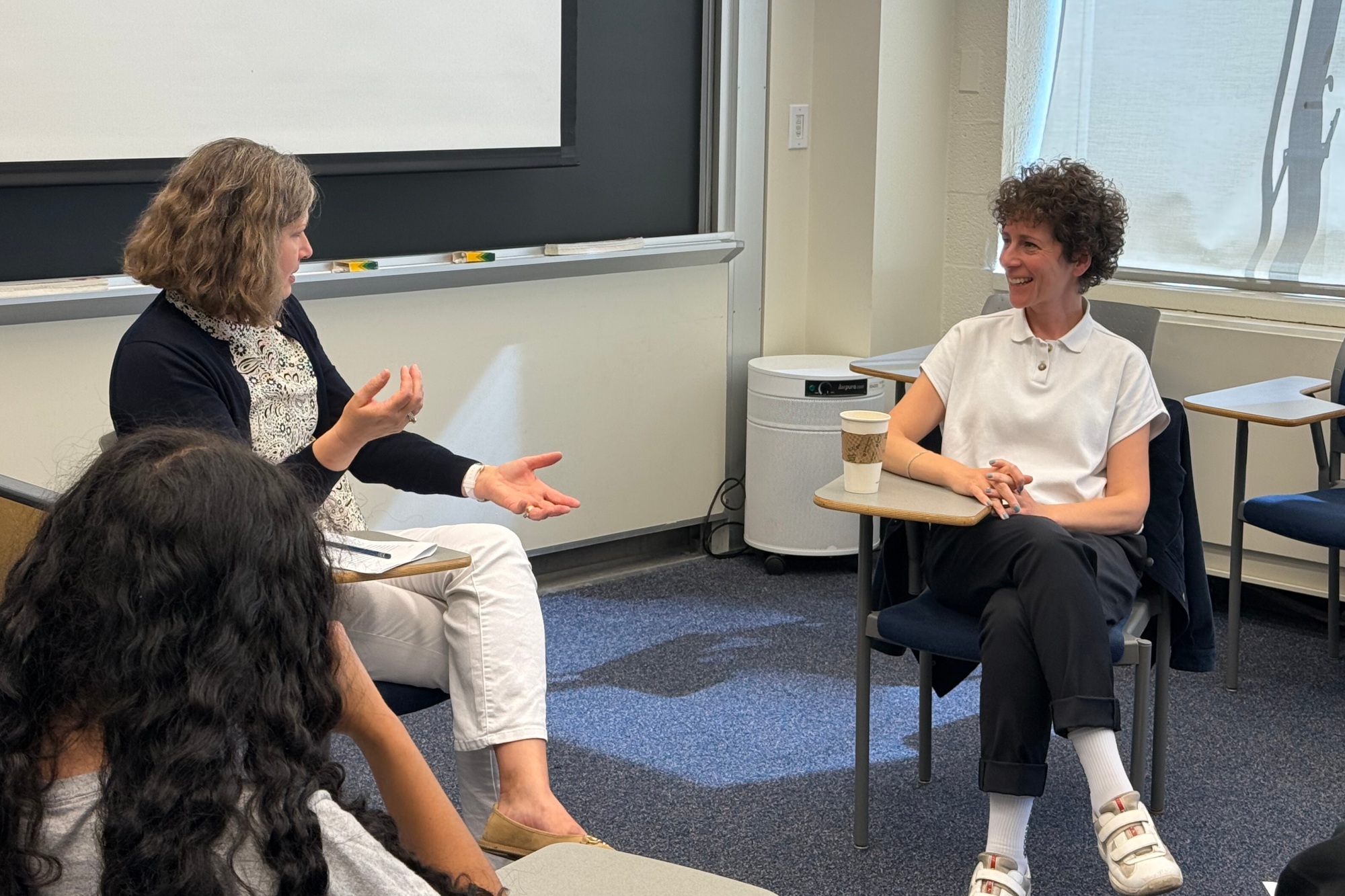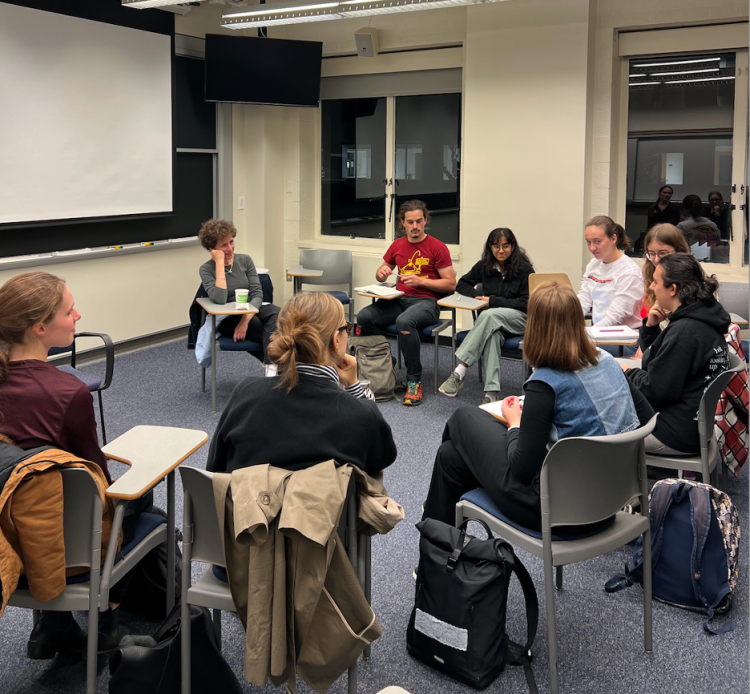
During acclaimed playwright and novelist Sasha Marianna Salzmann’s CAST Artist Residency at MIT, students in Global Languages had the rare opportunity to engage directly with the author whose works they had been studying. Across intermediate and advanced German courses, including 21G.403 German III and 21G.404 German IV taught by Dagmar Jaeger and 21G.411 A Literary Investigation of German Politics, taught by Emily Goodling, students explored Salzmann’s Meteoriten and other writings that grapple with themes of queerness, migration, and contemporary German society.
Guided by Goodling and Jaeger, the classes paired literary study with discussions of theater, identity, and political expression—culminating in in-person dialogues with Salzmann. Through these exchanges, students experienced firsthand how literature and performance can illuminate questions of belonging, authorship, and the social imagination.
During Sasha Salzmann’s one-week CAST residency at MIT in Fall 2025, students in intermediate and advanced German Studies had the unique opportunity to meet the acclaimed author and playwright in person during class. Prior to Salzmann’s visit, students in 21G.411 A Literary Investigation of German Politics, 21G.403 German III, and 21G.404 German IV had engaged with a variety of the author’s texts. The in-class meetings offered students the rare chance to discuss these works directly with Salzmann—in German—and to gain firsthand insight into the themes, language, and creative process behind the writing.
Students in 21G.411: A Literary Investigation of German Politics read Salzmann’s play Meteoriten, written during their tenure as house author at Berlin’s radical “postmigrant” Maxim Gorki Theater. The play explores queer relationships against the backdrop of a changing German society on the eve of the country’s 2014 Soccer World Cup victory. Students paired the play with readings from queer theorist José Esteban Muñoz and conducted a deep dive into the history and politics of contemporary German theater. During Salzmann’s class visit, a lively discussion unfolded around topics ranging from contemporary theater aesthetics to concepts of futurity in Germany’s socio-political landscape.
In 21G.403 German III and 21G.404 German IV, students read short literary texts addressing the ongoing war in Ukraine. For example, students in German IV examined the autobiographical text “Grischa,” in which the narrator encounters two Ukrainian refugees—Sweta and her son Grischa—who have fled to Berlin while the father remains behind. As the story unfolds, the protagonist’s own family history, with roots in both Russia and Ukraine, emerges, prompting reflection on the emotional and political layers of the encounter. Students prepared questions for Salzmann, used digital annotation tools to deepen their understanding, and worked with maps to trace both the refugees’ journey and the protagonist’s linguistic and cultural background.
At one point during the conversations, Salzmann remarked that “the reader always looks for the author.” The comment resonated deeply with students, who realized how often they had searched for Salzmann’s own voice and identity within the texts they had studied. That moment crystallized many of the week’s discussions about authorship, perspective, and the relationship between life and art.
Engaging with the author inspired students to think critically about identity, language, and expression in literature. The encounter deepened their appreciation for the complexities and nuances of storytelling across cultures. Meeting Sasha Salzmann served as a powerful reminder of how literature can challenge assumptions, provoke empathy, and open minds. Students left the experience with a richer understanding of Salzmann’s work and of the ways in which a contemporary artist and activist engages with Germany today.
The residency was sponsored by MIT CAST and Global Languages. The residency was organized by Emily Goodling, Lecturer in German.

